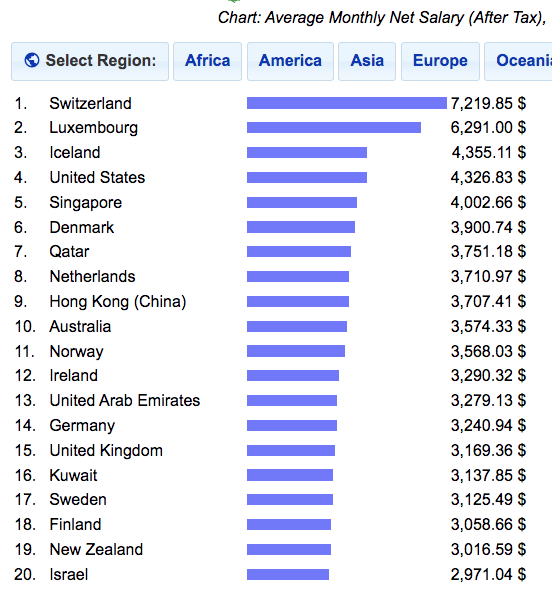In a recent post, Kevin Erdmann uses the concept of never reason from a price change to explain why low wages do not give a country an advantage in international trade:
The confusion comes from “all else held equal” thinking. All of those costs are part of an interconnected web of interactions. Interest rates may be high because investors are looking for risk more than safety and more corporations are seeking debt financing for expansion plans. So, at the micro level, high interest rates seem like they work against profitable activity, but at the macro level, they are frequently associated with more activity.
Likewise with wages. High wages are the product of the quality of local economic and public institutions. They are a product of the broad set of alternatives that workers have access to. They are a result of the productivity that comes from the incomprehensible web of cooperative and competitive actions and opportunities that are present in an economically advanced community.
Production moves to places where productivity is rising and institutions are improving. Production moves to places that find themselves capable of producing more. Production moves to where wages are rising, not where wages are low. Production appears to move to where wages are low because the places with the most potential for improvement are the places that were previously worse off.
Let’s take a look at the 20 countries with the highest wages in the world, provided by Numbeo.com.

(Note, ideally, we’d want to use pretax hourly wages, but I could not find that data. Nonetheless, a list using appropriate data it would be highly correlated with this list.)
Among the 10 highest wage economies, only three run trade deficits (the US, Iceland and Australia.) Among the next 10 highest, only two run trade deficits (the UK and New Zealand.) That means 15 of the 20 high wage countries run surpluses. Even if you exclude the 4 oil and gas economies, 11 out of 16 run surpluses. High wages tend to be associated with trade surpluses.
As a general rule, countries running trade deficits fall into two major categories:
- Low wages
- English-speaking
As a general rule, countries running trade surpluses tend to fall into three major categories:
- High wages
- Energy exporters
- Confucian culture (East Asia.)
To summarize, there is no evidence at all for the claim that, “Jobs are leaving the US because we pay high wages.” Wages largely reflect productivity.
Never reason from a wage level.
PS. I often argue that bilateral trade balances are meaningless. A recent article in the Financial Times provides another reason why this is so:
Chinese exporters are stepping up efforts to avoid tariffs imposed by US President Donald Trump by shipping their goods via third countries to conceal their true origin.
